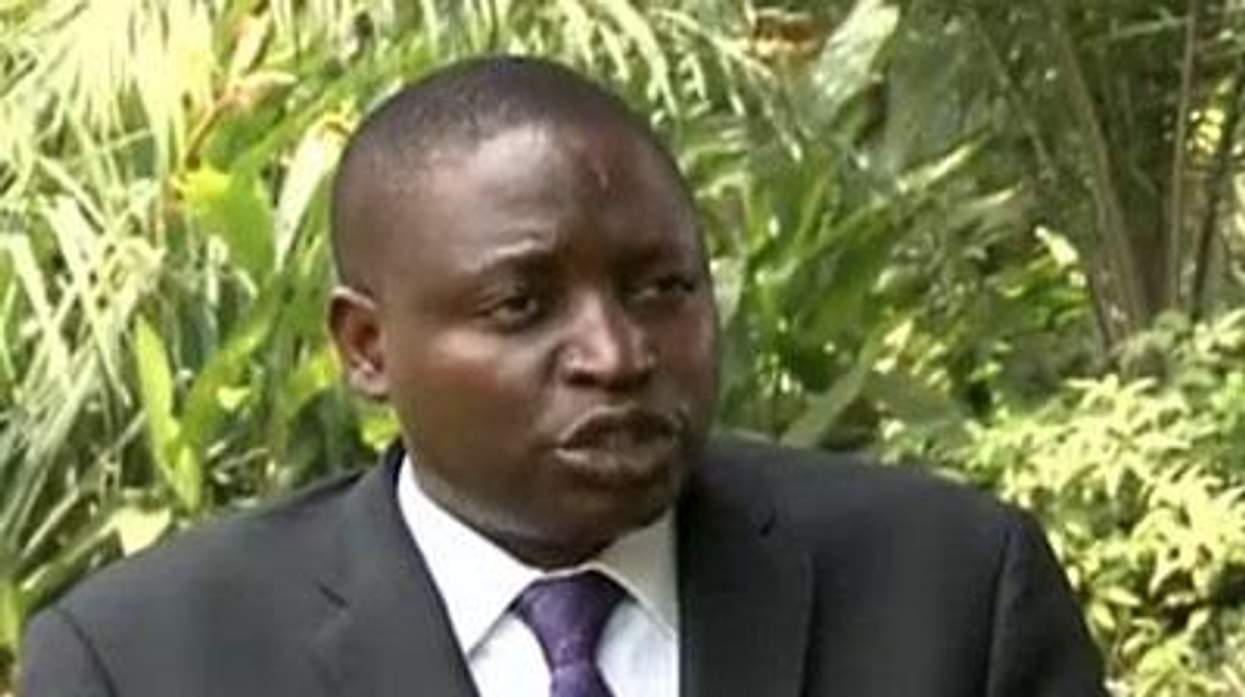The author of Uganda's draconian "jail the gays" law says protecting African morality is worth the more than $115 million in international aid that's been diverted away from the East African nation since President Yoweri Museveni signed the legislation last month.
David Bahati, the original author of the Anti-Homosexuality Bill and a member of Parliament representing the ruling National Resistance Movement party, told Reuters that the aid cuts from Uganda's international allies upset with the law's passage were tantamount to blackmail but that he expected more to come down the pike.
"[The law] is very much worth it because it will protect our values," Bahati told Reuters. "I think a society that has no moral values is a contradiction to development."
In response to the bill's signing, several nations announced that they were cutting aid to the East African nation, which relies heavily on international support to maintain government operations. In late February, the Norwegian, Dutch, and Danish governments said a cumulative $26 million in aid would no longer go to Uganda because of the law, instead directing that funding to nongovernmental organizations and nonprofits that support human rights. Just days later, the World Bank announced an "indefinite delay" on a $90 million health care loan scheduled to be approved last Friday.
The U.S. has not yet announced any formal aid cuts, but Secretary of State John Kerry has reportedly spoken with the Ugandan president and condemned the law, in addition to issuing a statement claiming the U.S. is launching an "internal review of our relationship with the government of Uganda."
LGBT activists in Uganda have cautioned international allies against making sweeping aid cuts but did applaud the Dutch tactic of redirecting that aid from Uganda's Justice Sector to pro-LGBT nonprofits. The beleaguered activists -- many of whom have gone into hiding since the law's passage prompted public attacks and at least one death of someone suspected to be gay -- have published guidelines for international allies wanting to help support the community. Those recommendations include encouraging notable celebrities, politicians, and corporate leaders to speak out against the law and the numerous other human rights violations in Uganda, organizing worldwide demonstrations, and lobbying local governments to revise their policies for emergency asylum for those Ugandans who want to flee.
When Bahati first authored the bill in 2009, the legislation called for the death penalty for anyone convicted of "aggravated homosexuality," which included multiple instances of same-sex sexual contact or any homosexual acts in which one participant was a minor, HIV-positive, mentally disabled, or under the influence of drugs or alcohol.
As passed by Parliament December 20 and signed into law February 24, the law replaces the capital punishment provision for "aggravated homosexuality" with a stipulation mandating life imprisonment, and orders that a person charged with the offense must undergo a medical examination -- which in practice is usually a forcible anal examination -- and HIV test, regardless of the individual's consent. The law also imposes harsh sentences on those convicted of aiding, abetting, or conspiring to engage in homosexuality. Any person or organization performing a same-sex marriage is likely to lose their licensure and spend as many as seven years in jail. The law also enumerates the numerous ways in which the "promotion of homosexuality" is forbidden, clamping down on individuals, organizations, and media outlets that discuss LGBT identities, and provides for extradition of Ugandan nationals who violate the law abroad.





































































Charlie Kirk DID say stoning gay people was the 'perfect law' — and these other heinous quotes